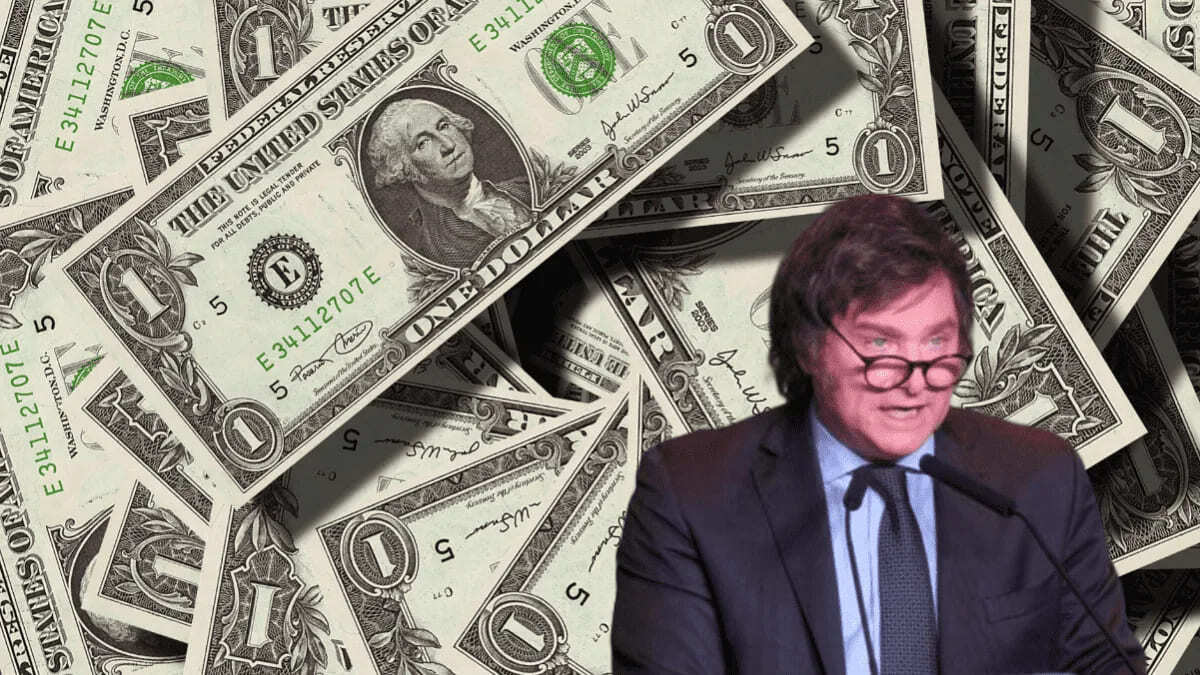The national government is fine-tuning its plan to raise the dollar buffer without issuing pesos or violating FATF regulations.


After postponing the announcement to avoid opposition protests, Javier Milei 's government is moving forward with defining a plan to incorporate dollars hoarded outside the financial system into the economic cycle . This strategy aims to boost activity without resorting to issuing currency and without compromising international standards for preventing money laundering.
We will not allow Kirchnerism the opportunity to accuse a package of far-reaching measures for all Argentine savers of being electoralist. The economic announcement the National Government had prepared for today has been postponed.
End.
The official presentation was postponed until after this Sunday's elections, although the economic team has already finalized the technical aspects and is now focusing its efforts on regulatory adjustments that will protect the measure from potential institutional challenges.
Remonetization is one of the central objectives set by the Ministry of Economy to avoid a slowdown in activity in a context of severe monetary restrictions. With no room to expand the monetary base in pesos, the plan relies on some of the foreign currency stashed "under the mattress" to become part of the system.
This isn't the first time this has been attempted. The money laundering scheme approved by law last year ended ten days ago, allowing for the channeling of some USD 20 billion. That experience resulted in a larger volume of loans in dollars, one of the consequences sought by the Treasury Department.
Now, the strategy is more ambitious and will also require political support. Therefore, the plan will be submitted to Congress, although some of the regulations will remain under the purview of the Executive Branch.
One of the areas that generated the most technical debate revolves around the Income Tax for self-employed individuals. The draft currently circulating proposes eliminating the requirement to justify expenditures and increases in assets at the end of the fiscal year, allowing only net profits to be declared. The goal is to reduce the resistance of those with undeclared foreign currency assets.
Official sources emphasize that this change will not affect the highest net worth individuals and that it is a targeted measure to facilitate the entry of foreign currency into the system without affecting structural tax revenue.
The government is seeking to ensure that the scheme complies with the requirements of the Financial Action Task Force (FATF) to avoid sanctions or warnings. For this reason, legal and technical work was strengthened before moving forward with the decree.
In recent days, both Luis Caputo and the president of the Central Bank, Santiago Bausili , held talks with investors to explain the official approach. According to Adcap Grupo Financiero, the message was clear: the economy needs remonetization, but this task must be done in dollars , since monetary aggregates in pesos will remain stable in accordance with the agreement with the IMF.
The consulting firm Quantum, headed by former Finance Secretary Daniel Marx , agreed that there is already an incipient process of dollar monetization, driven by the easing of restrictions on individuals. In this scenario, citizens themselves are depositing their foreign currency into the system.
The report highlights that new measures could strengthen this path, although it warns that maintaining it in the second half of the year will be a challenge due to the seasonally reduced supply of foreign currency. Therefore, a greater role for the capital account, both public and private, is expected.
Ieral, part of the Mediterranean Foundation, noted that the latest sector data for March showed warning signs. According to the institute, the economy experienced a slowdown following the inflationary surge at the beginning of the year and the climate of uncertainty prior to the lifting of the currency controls.
Despite this, analysts maintain that if even 2% of the total estimated holdings outside the system—around USD 8 billion—are channeled, the impact would be significant. From VAT alone, this would represent $1.6 trillion in revenue, nearly half of the amount collected from that tax in April.
With the scheme in its final stretch, the government is confident it will be one of the key tools for consolidating economic stabilization without issuing a single peso.
elintransigente





